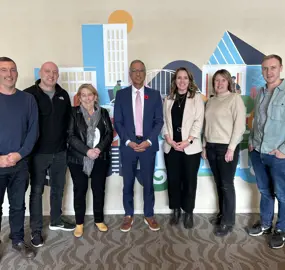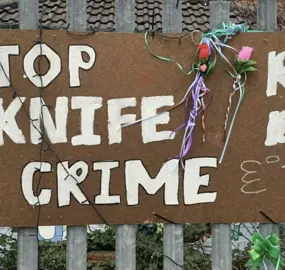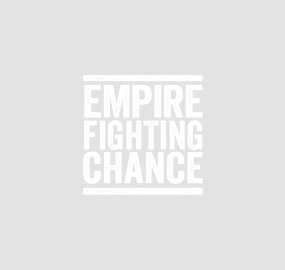Lessons from Colombia
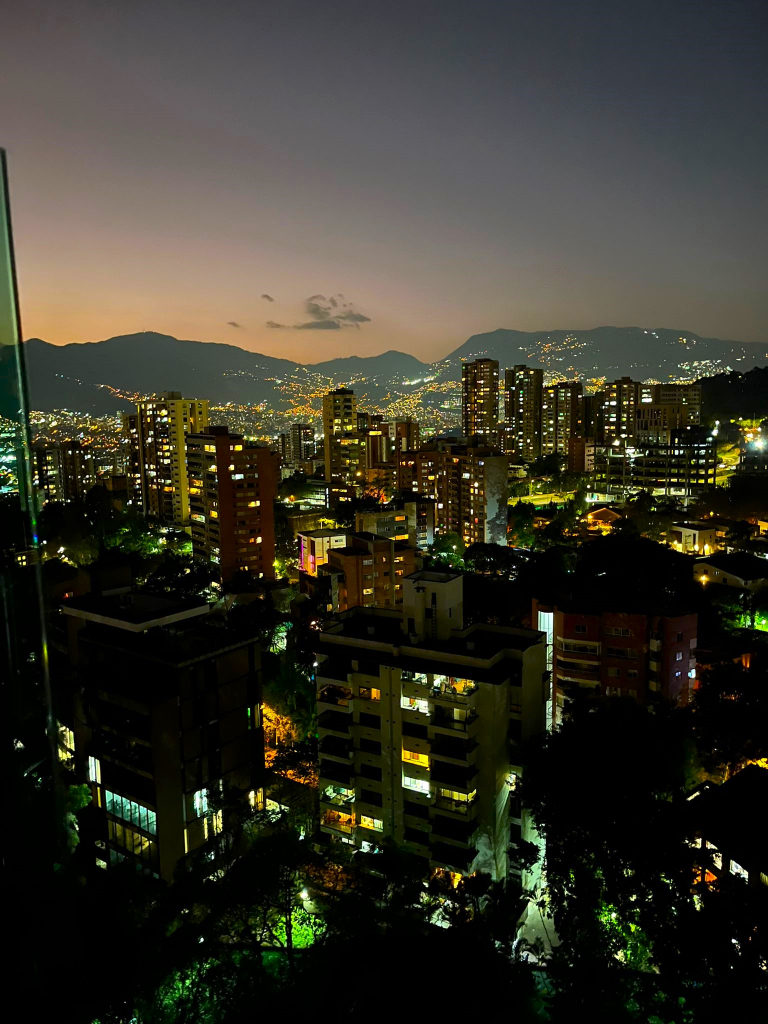
The city at night 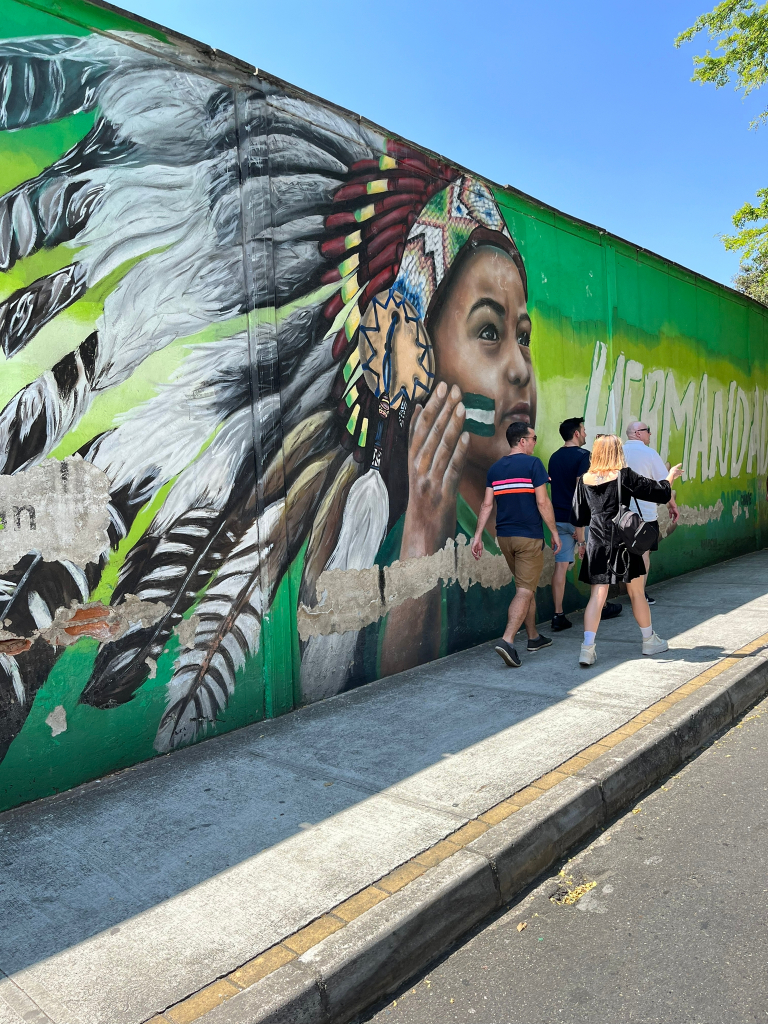
Public art in the streets
Empire Fighting Chance exists to fight the effects of poverty and inequality on young people, and our vision is a society where our services aren’t even needed anymore.
But, until then, we’re committed to making the greatest impact on the lives of vulnerable young people with the resources we have. Knowing that we do not hold all the solutions ourselves, we seek inspiration and guidance from those outside our charity who have had success in tackling poor mental health, behavioural issues, and violence among young people.
That’s why, when a small group of Empire colleagues were invited to Medellín to take part in a knowledge exchange on tackling youth violence by the city’s former Chief Resilience Officer, we saw this as an unmissable opportunity to grow our impact.
We met Santiago Uribe Rocha through participation in a global initiative to stimulate action toward Goal 16 of the United Nations Sustainable Development Goals - to promote peaceful and inclusive societies. Santiago now runs a non-governmental organisation focused on developing peaceful cities, Medellín Resiliente.
Our ambitions for the five-day visit, which took place at the end of January 2023, were threefold:
- Understand and learn from how Medellín had dramatically reduced violence during the past thirty years and had become a peaceful and prosperous city
- Share our charity’s approaches and insights to reducing youth violence
- Develop a productive partnership with the Medellín Resiliente team
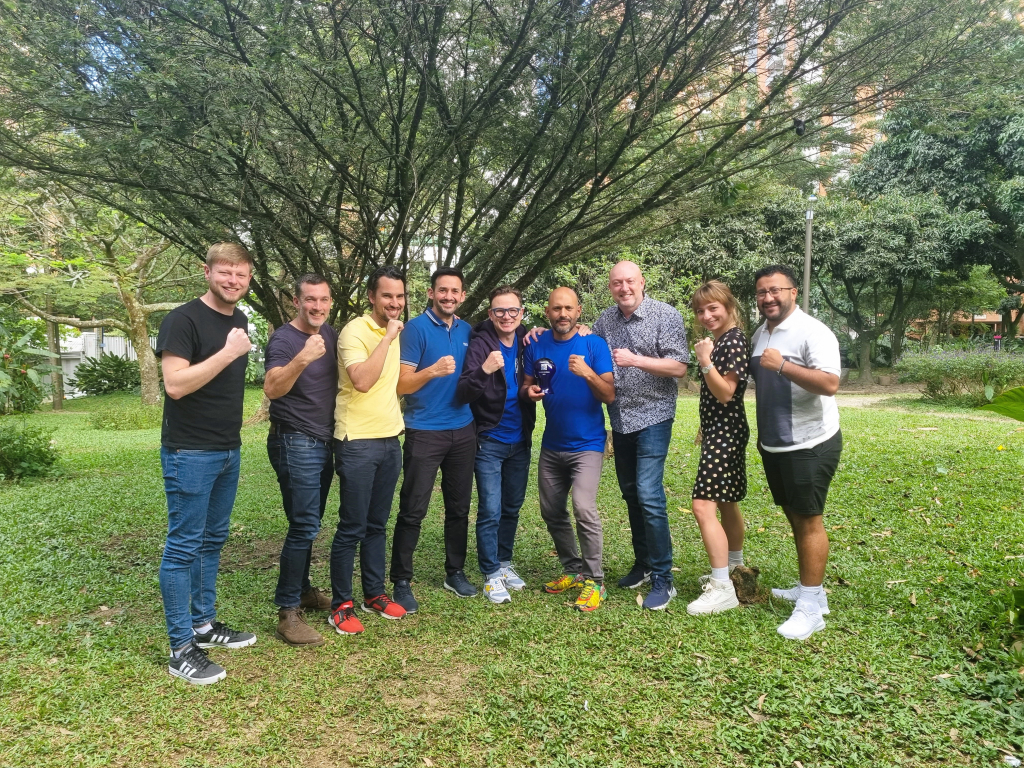
The Empire team with the Medellín Resiliente team
Medellín’s story
Medellín, Colombia has gone through nothing short of a transformation in the 30 years since its status as the murder capital of the world in 1991, when 16 people were killed every day. But this violence was just the tip of the iceberg – its roots lay in pervasive social exclusion and deep divisions.
In the 1980s Medellín saw a large influx of people from rural Colombia. They arrived in the city to find a lack of opportunities for employment and housing. In response, they created informal settlements on the steep hills which surround the city. Areas of extreme deprivation developed in these hillside communities called ‘comunas’. Their location made transportation difficult and cut residents off from job and education opportunities. Medellín became a city of many disparate parts.
The comunas became ideal places for the drug cartels to recruit and for groups fighting the Government to hide. The communities became characterised by extreme violence, witnessing ongoing conflict between the Medellín Cartel, paramilitary forces, and local militias. The communities became inaccessible to police and other public services. As a result, the communities became neglected.
In the early 1990s the city began to take control back from the cartel. City institutions and Medellín’s elites joined forces to redevelop the city, prioritising the needs of those who had experienced the greatest suffering. The city designed and implemented an ambitious transformation project of public spaces, transport infrastructure and urban interventions to address violence and inequality.
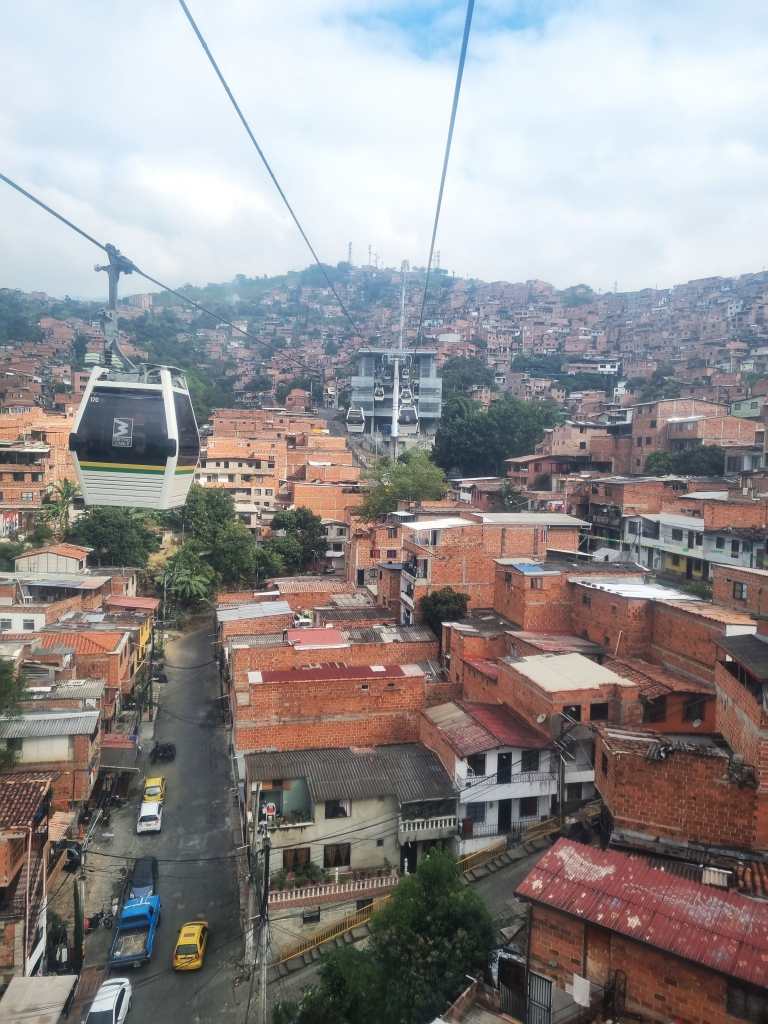
The Metrocable 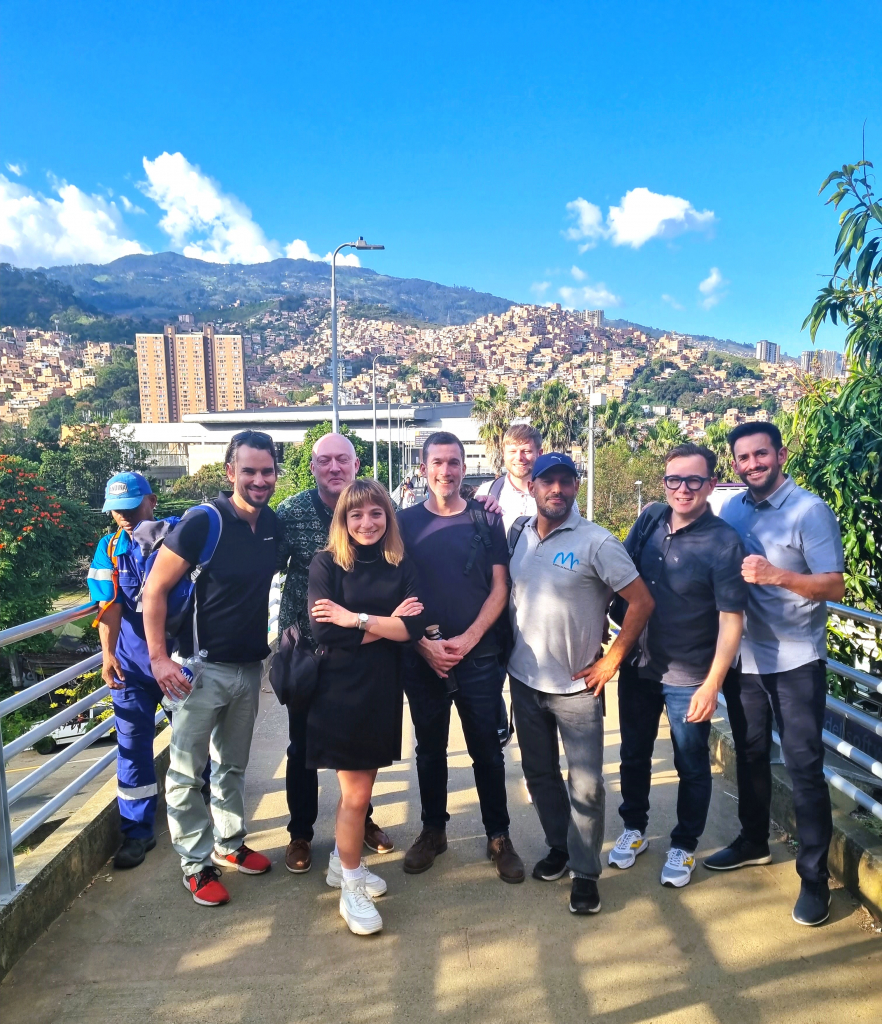
On a bridge to a Metro station
Medellín invested huge sums of public money in urban infrastructure, including the Metrocable (a cable car network which integrates the hillside comunas with the centre), metro and tram systems, and educational, sport and cultural facilities throughout the comunas and the city centre. Important services were also brought into each of the comunas, including police, health, and social services. Medellín recognised that cities are more than buildings and invested heavily in cultural change, transforming the way its citizens felt about each other, the state, and their wider city.
The results have been staggering. Over the past three decades, Medellín cut its homicide and poverty rates dramatically. In 1991 there were 6,349 deaths, in 2022 only 319 deaths. The city has now become one of the most innovative cities in Latin America. It has a flourishing economy, with 40% of Colombia’s exports — products such as steel, textiles, food, drink, flowers, agriculture, chemical products, pharmaceuticals, and refined oil — now coming from Medellín.
The transformation of Medellín is a living model for how people can come together to create profound changes to the places they live.
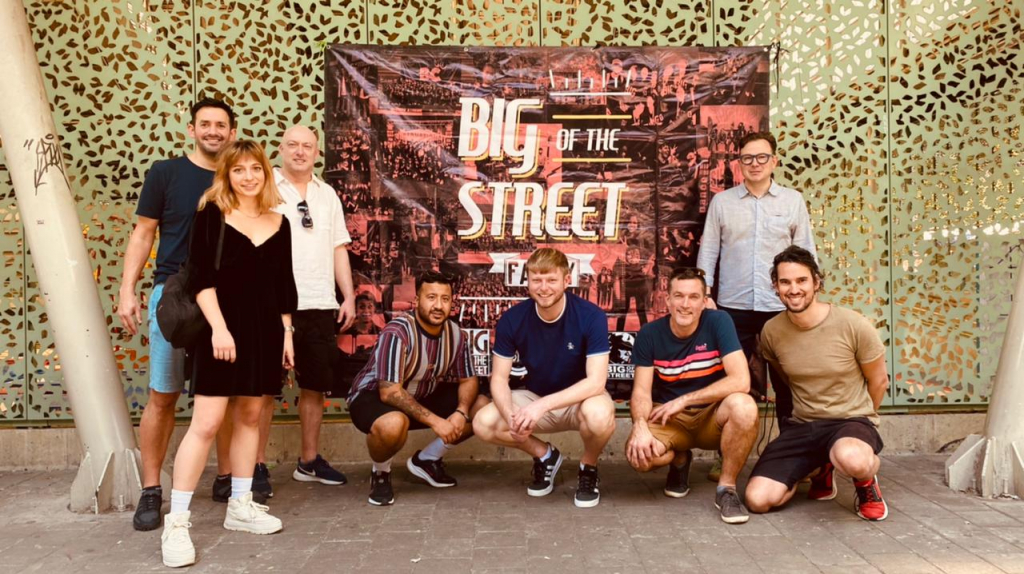
Outside Medellín Sports Coliseum
Lessons for Empire Fighting Chance
Our team explored the city with an itinerary carefully crafted by our expert guides, Santiago and Jean-Edouard. We visited Urban Integration Projects (‘PUIs’ in Spanish) in neighbourhoods across Medellín, seeing how the PUI infrastructure brought together solutions to transport, governance, policing and education, alongside the provision of public spaces and sports facilities. These visits incorporated discussions with policymakers and opportunities for deeper reflection on how we can apply lessons from the Medellín model to Bristol.
The visit gave us confidence that Empire Fighting Chance is already doing several things right. We are successfully using many of the principles and strategies that were used to transform Medellín. These include:
- Using sport to transform lives. This was a major strategy for Medellín to bring communities together, improve public health, and create a city where people wanted to live.
- Entrepreneurial thinking and creativity. We saw this in abundance in Medellín at an individual level (e.g. families running businesses from their homes and young people setting up informal projects) and city-wide level (e.g. the city experimented with citizen-generated ideas before scaling them).
- Building trust as a key component for driving change. The city focused on building trust between people, between communities and between citizens and the state.
- Using evidence to drive change. The city found ways to measure positive behaviour changes such as trust, and using this to guide their efforts and secure more funding.
- Proximity and accessibility of services to people. This was an important strategy for the city to bring opportunities closer to its citizens. For example, every neighbourhood had a full range of public services within it, such as sports, education and cultural facilities.
Despite these successes, we recognised that we can be doing more to make a greater impact on the lives of young people and the wider communities we serve. The visit provided us with many ideas for how we could develop Empire Fighting Chance to help to transform our home city of Bristol and our work with boxing clubs across the UK.
Here are some of the changes we will be making.
Increase community participation and intelligence
Over four years the Medellín Mayor’s Office spoke to every community to find out what kind of city they wanted. They developed a collective vision for Medellín, one which people bought into. Critically, this meant citizens felt a sense of ownership of their city and pride when the transformation was successful.
Taking inspiration from this, we plan to amplify young people’s voice and role at Empire Fighting Chance. We already gather insights and inspiration from young people and empower them to represent us at meetings and events. But we want them to take on a greater role in informing our programmes and shaping our wider organisation.
Through referrals, parents, external agencies, and young people directly, we have built up a strong understanding of the issues facing those we work with. To shape our work and advocacy efforts in the coming year, we will develop a greater intelligence around their needs in the context of changes to public services, community relations and the economy.
Connection and integration
Medellín united communities and different parts of the city, forged a new identity and created opportunities for all. We heard how if a city is divided than it will inevitably suffer from violence and other social issues.
We learnt that we could be performing a more prominent role in connecting communities we work in with the wider city. So, we plan to explore the creation of programmes that connect people and communities up. We also want to build a bigger network of companies, further education providers and employability services that we can connect to young people. And we will explore how Empire can incorporate an emphasis on belonging and connection to community into our non-contact boxing programmes.
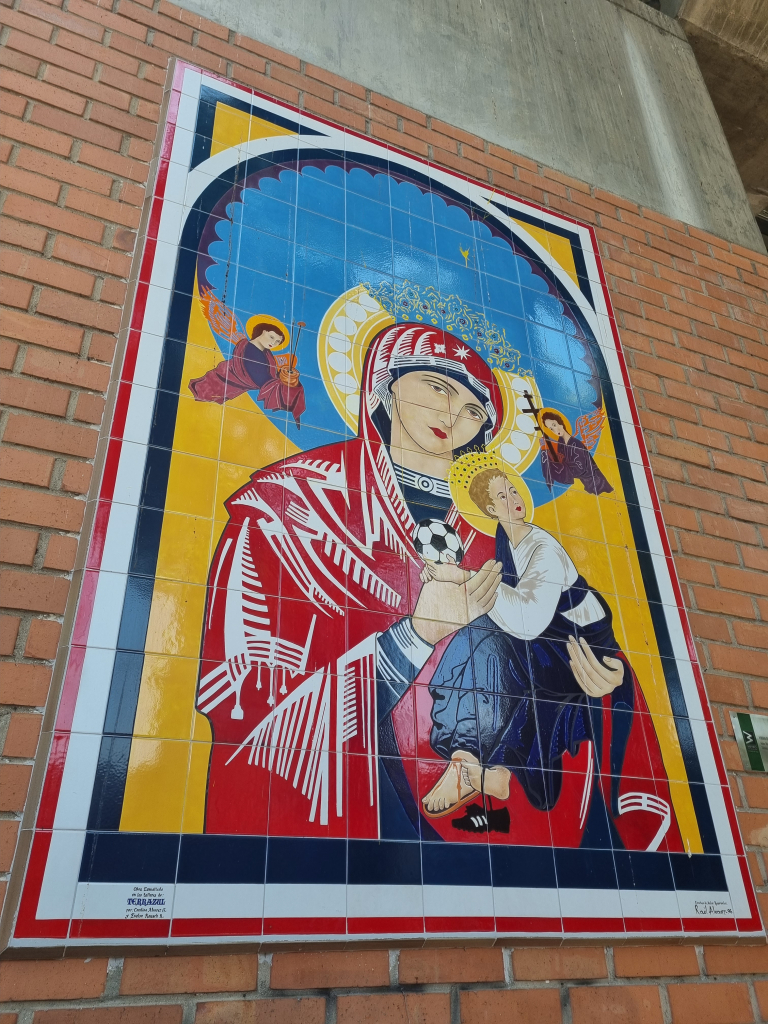
Art in the Metro station 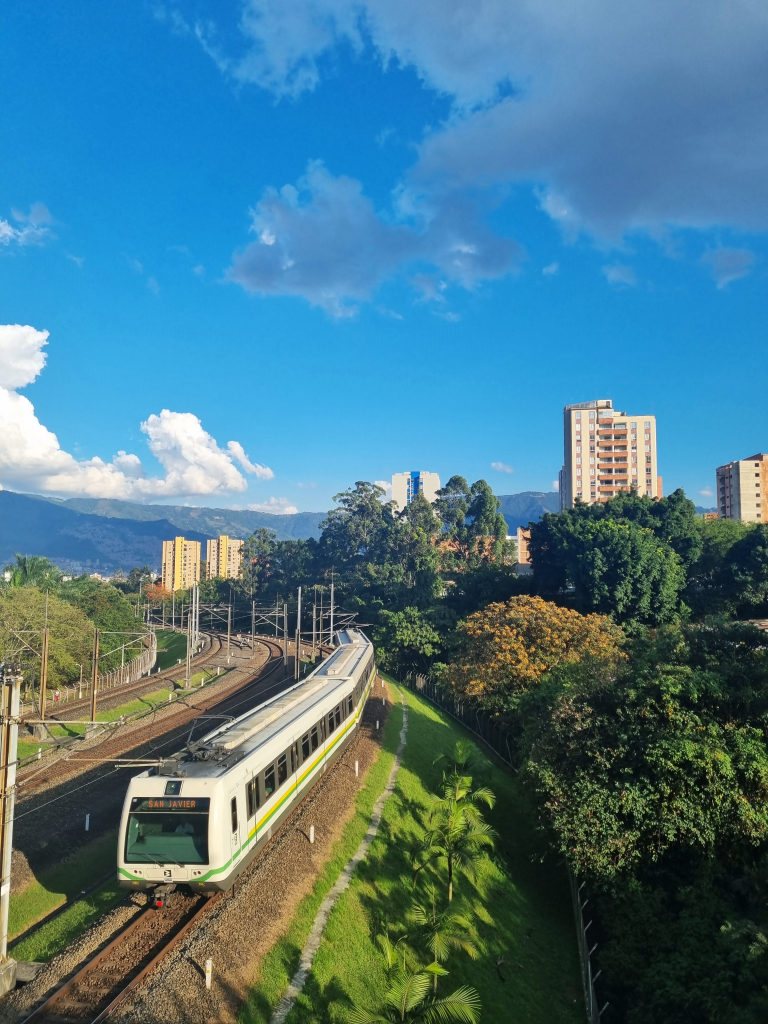
The Metro
Accessibility and proximity
Medellín made services and opportunities accessible to all. In each community citizens had access to a full range of services – sports facilities, schools, public university, a library, cultural activities.
At Empire, our gym is already in the heart of a local community, we are playing a vital role in taking mental health services out of clinics and into communities, and we take our programmes into schools across the region. But we can do more. We want to be hosting different activities and services provided by other organisations at our gym, in order to bring more opportunities closer to our local community.
Cross-sector collaboration
Key to Medellín’s transformation was the private sector, public sector, universities, and civil society working effectively together. At Empire, we recognise the value of different sectors working together and have built successful partnerships with organisations across the city. But we intend to participate more effectively in cross-sector boards and networks, explore bringing sectors together as part of our campaigns, and use our gym as a space to convene.
Make change at an individual, community and citywide level
The transformation of Medellín only happened because changes were made at all three levels. We were challenged by our hosts that unless we worked beyond the level of individual young people, to a community and citywide level, then issues would persist.
We want to evolve our role from being focused on achieving impact on the lives of individual young people to also having an impact on their community and wider city. We will do this by introducing quality signposting of young people to other services, to help to create a more connected system of support for them.
We can also strengthen the role our alumni play in improving their communities. We will view those who go through our programmes as agents of change, taking inspiration to their family, friends, and schools and be the voice of our advocacy efforts.
And we want to build our advocacy to improve communities and the wider city, by highlighting specific challenges faced by young people in Bristol and what needs to change. This could be done by working with other organisations to create a more powerful movement for vulnerable young people.
Use of sport
Medellín dramatically increased access to sport to bring communities together, improve public health and create a city where people wanted to live. At Empire, we want to improve how we articulate the value of sport and the specific benefits of boxing. In doing so, we hope to increase the level of sports participation among the communities we serve, and help people understand the unique power of boxing to change lives.
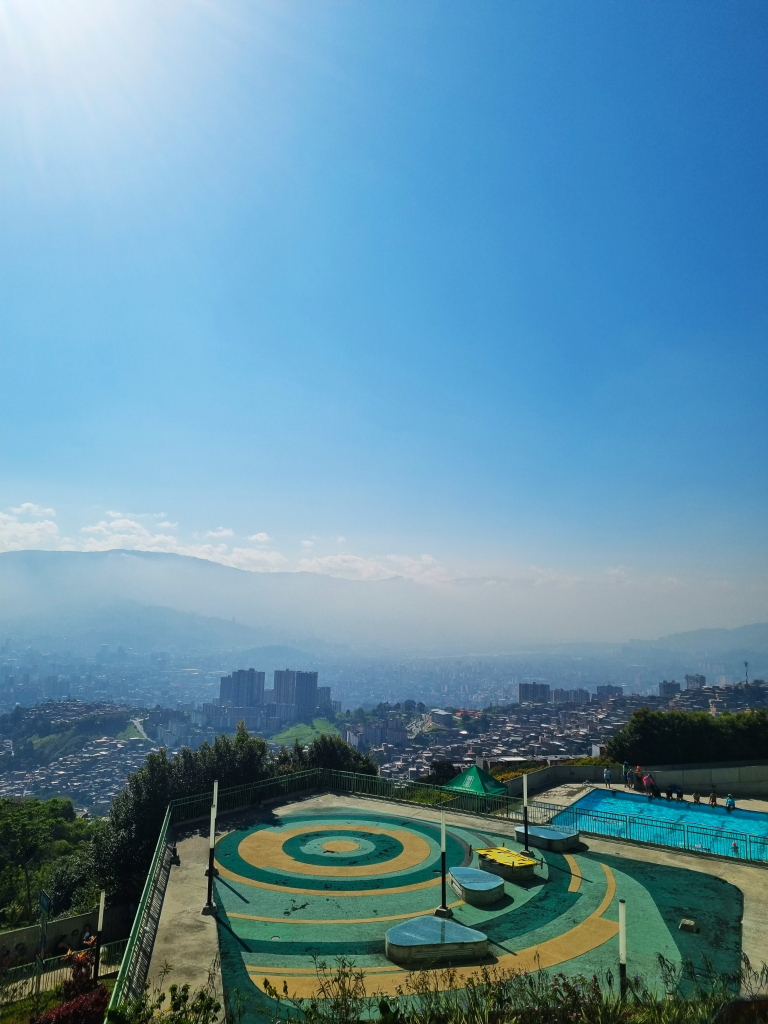
Sports facilities at a PUI 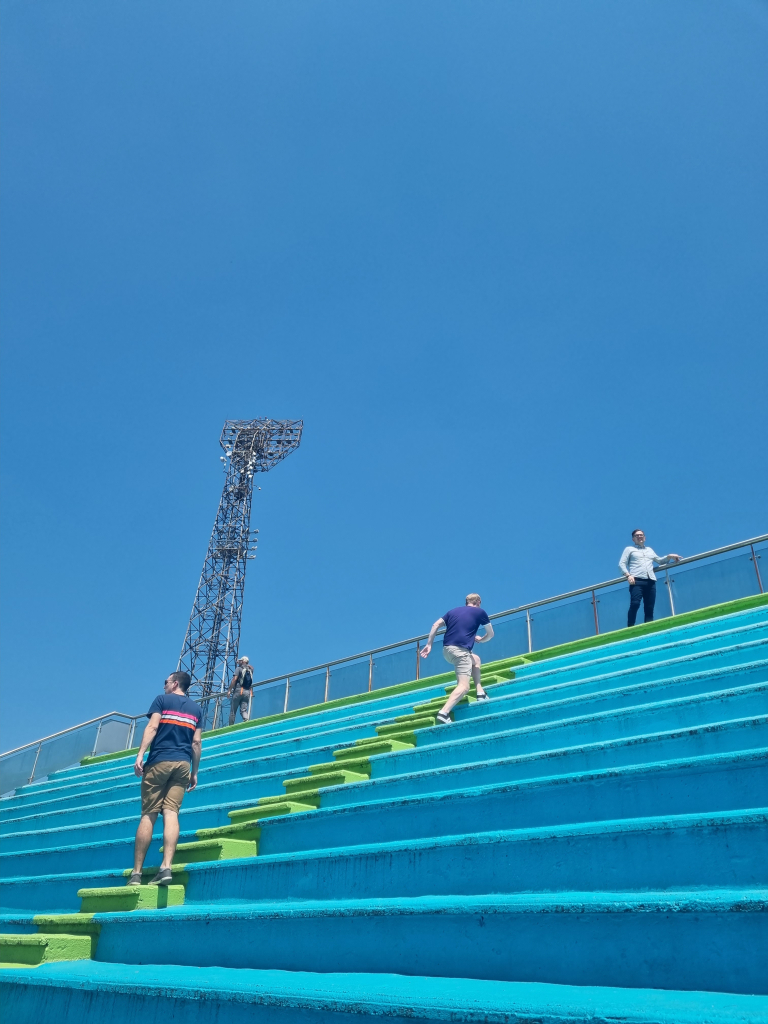
Sports facilities at a PUI
Use of evidence to drive change
The city found ways to measure positive changes, such as increased trust, and used this to guide their efforts and secure more funding for public services.
As our charity grows, we will review and refine our strategy and evidence gathering, to improve the quality of our work with young people and demonstrate the effectiveness of our programmes even further. So, as we embark on projects to improve our Theory of Change and Monitoring and Evaluation framework, we will place an emphasis on improving how we use evidence to drive change.
Over the next year, we will change as an organisation, but we are still committed to retaining what makes us ‘Empire’. It’s what has made us so successful as we’ve evolved from a small community project to a leading sport for development charity and will be critical for our future success.
We hope you will follow us on our journey – or get involved – as we up our game to fight for young lives in Bristol and beyond.


